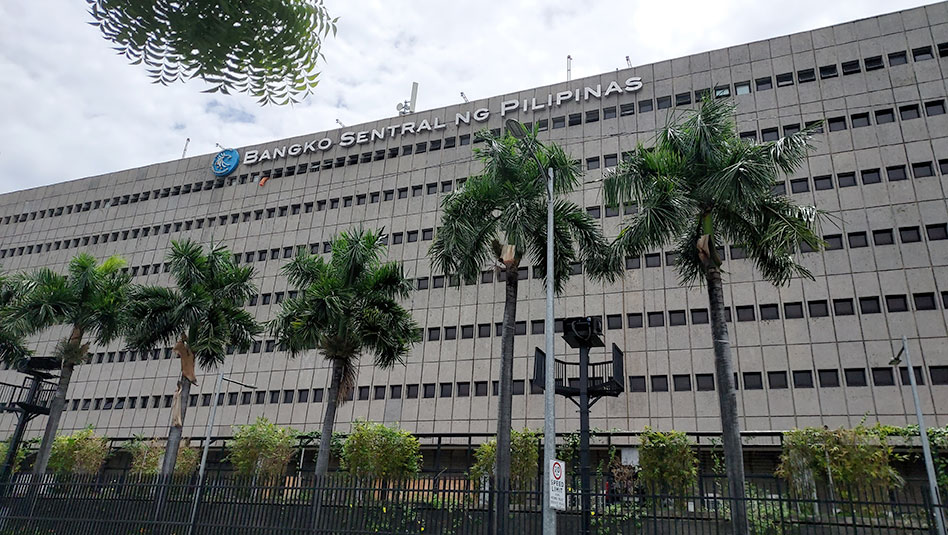




January Economic Update: Growth slows, prices rise
 DOWNLOAD
DOWNLOAD

Inflation Update: Up, up, and away?
 DOWNLOAD
DOWNLOAD

Quarterly Economic Growth Release: Growth takes on a slower pace
 DOWNLOAD
DOWNLOAD


BSP eyes ‘subscription’ model instead of zero transaction fees

The Bangko Sentral ng Pilipinas (BSP) is studying the possibility of implementing a “subscription” model for small electronic fund transfers such as e-wallet payments to replace transaction fees.
“Because of what we call network externalities, there should be a subscription fee, which is fixed rather than a fee per transaction,” BSP Governor Eli M. Remolona, Jr. said at a Rotary Club briefing on Thursday.
“We’re still trying to figure out how exactly to do that. We’re talking to GCash, we’re talking to Maya, we’re talking to all the participants and we’re going to agree on something.”
The central bank earlier said it is seeking to eliminate transaction fees for person-to-person electronic fund transfers and payments to small businesses.
Since 2023, it has been encouraging banks to formalize the removal of these fees to help boost digital payments.
“As you know, the situation now is between an individual and a merchant. The merchant pays the fees. The individual doesn’t see it but it’s made part of the price that the person pays,” Mr. Remolona said.
“Between persons, between individuals, we’re thinking about making that zero. No fees between up to a certain threshold. We haven’t determined the threshold.”
However, Mr. Remolona noted that there has been a bit of pushback from banks.
“The banks complained that if you do that, the guys who are above the threshold will just divide their transaction so that they fall within the threshold. But there’s some more fundamental issue. It’s not about the fees per transaction. I think that’s the wrong model.”
In his keynote speech, Mr. Remolona said they have been working to study the best model for digital payments in order to boost financial inclusion.
“If you look at the payment system, every time you add one more participant, that’s a cost. It’s a small cost, but that extra participant adds value to the whole system. You have a bigger network of participants. That’s what we call a network externality,” he said.
“We want to try to maximize that by looking at the fee structure, rely less on fees per transaction, and rely more on subscriptions, which is kind of a fixed cost. We hope that will help us maximize network externalities in the payment system and hope that this will lead to greater financial inclusion.”
Latest data from the BSP showed the value of transactions done through automated clearing houses InstaPay and PESONet jumped by 35.2% to PHP 15.62 trillion as of end-November from a year ago.
Digital payments made up 52.8% of the volume of retail transactions in 2023, higher than the 42.1% share in 2022.
The central bank wants online payments to make up 60-70% of the country’s total retail transaction volume by 2028, in line with the Philippine Development Plan. — Luisa Maria Jacinta C. Jocson
This article originally appeared on bworldonline.com





 By BusinessWorld
By BusinessWorld